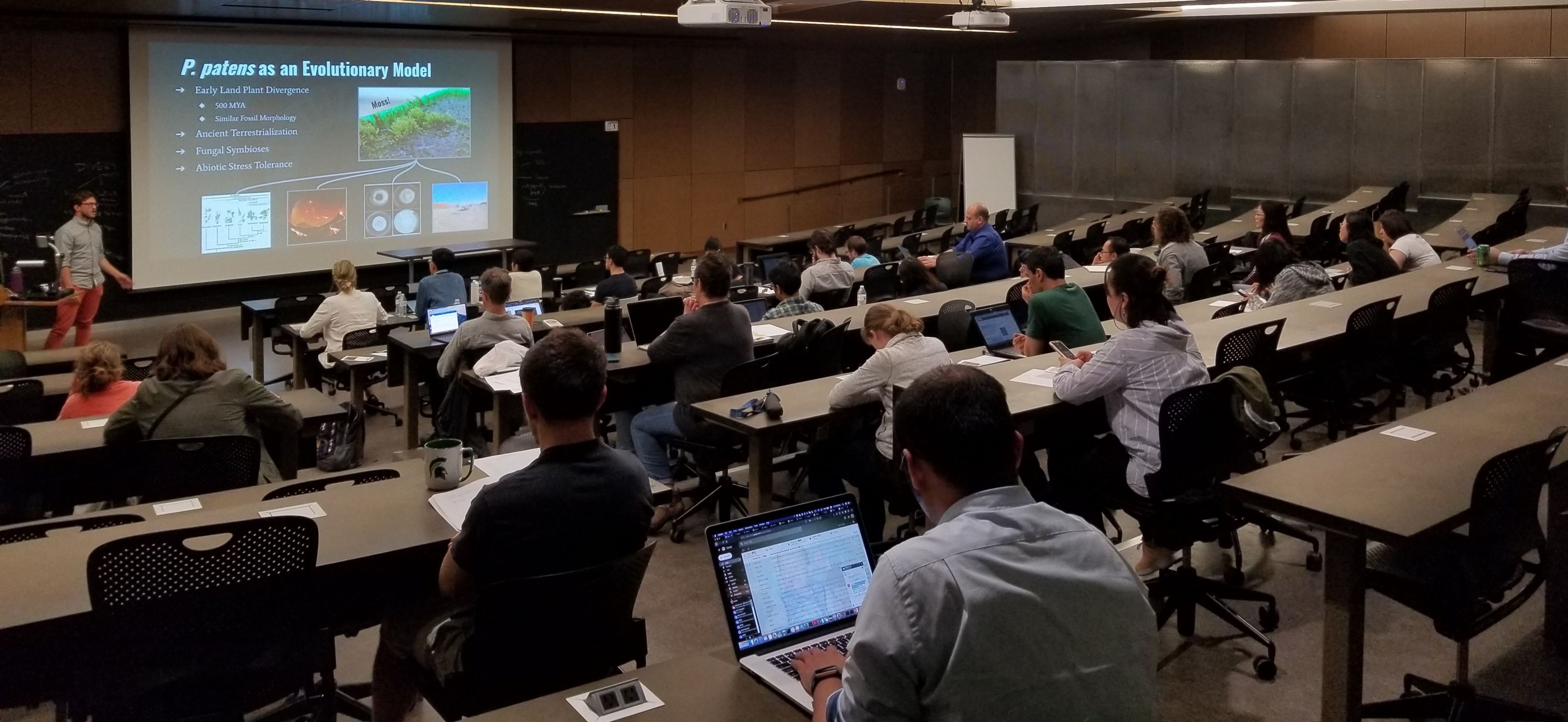Program
 Goals
Goals
The overall goal of this NRT program is to train scientists with an interdisciplinary background and conceptual framework to synthesize two divergent fields - plant science and computational/data science - and to integrate knowledge at multiple levels of biological organization. At the end of the program the trainees should be competent in the 5 areas. Detail list of areas is found here.
Contents
Our program has 5 components. All components will be open to non-trainees interested in computational plant science. Details about the components is found here.
Professional Development
Professional development preparing Trainees for a broad career path is a central component of the IMPACTS program. Trainees will participate in the following professional development activities aiming at bolstering the Trainee’s communication, leadership, management, mentoring, and teaching skills.
View more details on professional development.
- Communication
- Leadership and Management
- Teaching
- Mentoring
- Career Advancement
Organization
| Committee | Description | Members |
|---|---|---|
| Curriculum | Design and implement curriculum, prepare course forms, and work with departments/programs to clear obstacles. | Dan Chitwood, Jyothi Kumar, Tammy Long, Shinhan Shiu, Addie Thompson, Robert VanBuren |
| Evaluation | Design evaluation plan, oversee data gathering, and coordinate with external evaluator. | Jyothi Kumar, Tammy Long, Shinhan Shiu |
| Executive Committee | Work with director/co-directors on program management, review applications, and delegate project report items among subcommittees. | Karen Cichy, Patrick Edger, Jyothi Kumar, Tammy Long, Shinhan Shiu, Jianrong Wang, Haolei Weng |
| Recruitment | Interface with degree programs on advertising the NRT, attend major recruitment events on campus, and increase URM student participation via conferences. | Trainees: TBD |
| Symposium or Retreat | Collaborate with trainees to select a symposium topic, invite speakers, and arrange date, venue, and logistics. | Trainees: TBD |
Reports & Logic Model
2022
External Evaluation Report
2021
External Evaluation Report
2020
2019